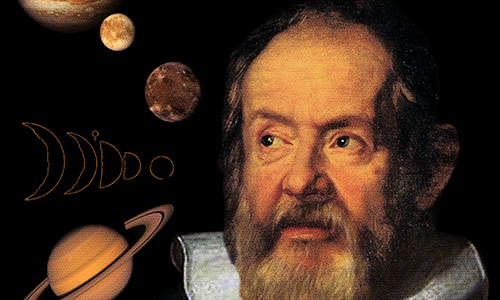GIẢI CHI TIẾT và DỊCH HOÀN THIỆN ĐỀ THI IELTS READING:
The concept of intelligence

A
Looked at in one way, everyone knows what intelligence is; looked at in another way, no one does. In other words, people all have unconscious notions – known as ‘implicit theories’ – of intelligence, but no one knows for certain what it actually is. This chapter addresses how people conceptualize intelligence, whatever it may actually be.
Nhìn theo một cách nào đó mọi người biết thông minh là gì; nhìn theo một cách khác, không ai biết cả. Nói cách khác, tất cả mọi người có những khái niệm vô thức - gọi là " lý thuyết ngầm" về thông minh, nhưng không ai biết chắc thực sự nó là gì. Chương này đề cập đến cách mọi người khái niệm hóa sự thông minh bất chấp thực sự nó là gì.
But why should we even care what people think intelligence is, as opposed only to valuing whatever it actually is? There are at least four reasons people’s conceptions of intelligence matter.
Nhưng tại sao chúng ta còn quan tâm người khác nghĩ gì về sự thông minh thay vì chỉ coi trọng dù nó thực sự là gì? Có ít nhất bốn lý do vì sao khái niệm của mọi người về vấn đề thông minh lại quan trọng.
Giải thích thêm:
as opposed to = in stead of, rather than: thay vì,
B
First, implicit theories of intelligence drive the way in which people perceive and evaluate their own intelligence and that of others. To better understand the judgments people make about their own and others’ abilities, it is useful to learn about people’s implicit theories. For example, parents’ implicit theories of their children’s language development will determine at what ages they will be willing to make various corrections in their children’s speech. More generally, parents’ implicit theories of intelligence will determine at what ages they believe their children are ready to perform various cognitive tasks. Job interviewers will make hiring decisions on the basis of their implicit theories of intelligence. People will decide who to be friends with on the basis of such theories. In sum, knowledge about implicit theories of intelligence is important because this knowledge is so often used by people to make judgments in the course of their everyday lives.
Đầu tiên, các lý thuyết ngầm về thông minh dẫn đến cách mà mọi người suy nghĩ và đánh giá sự thông minh của chính mình và của người khác. Để hiểu hơn những phán xét mà mọi người đưa ra về khả năng của chính họ và những người khác, sẽ rất hữu ích khi tìm hiểu về các lý thuyết ngầm của mọi người. Chẳng hạn, các lý thuyết ngầm của cha mẹ về trí thông minh ở sự phát triển ngôn ngữ của con cái họ sẽ xác định độ tuổi nào họ sẽ sẵn sàng thực hiện những chỉnh sửa khác nhau trong lời nói của mình. Tổng quát hơn, những thuyết thông minh ngầm của cha mẹ sẽ xác định độ tuổi mà họ tin rằng con cái họ sẵn sàng thực hiện nhiều nhiệm vụ nhận thức khác nhau. Những người phỏng vấn việc làm sẽ đưa ra quyết định tuyển dụng dựa trên nền tảng lý thuyết ngầm của họ về sự thông minh. Mọi người sẽ quyết định ai là bạn dựa trên nền tảng của những lý thuyết ngầm như vậy. Tóm lại, kiến thức về những lý thuyết ngầm về sự thông minh rất quan trọng bởi vì kiến thức này được mọi người sử dụng quá thường xuyên để đưa ra các phán đoán trong hành trình cuộc sống mỗi ngày.

C
Second, the implicit theories of scientific investigators ultimately give rise to their explicit theories. Thus it is useful to find out what these implicit theories are. Implicit theories provide a framework that is useful in defining the general scope of a phenomenon – especially a not-well-understood phenomenon. These implicit theories can suggest what aspects of the phenomenon have been more or less attended to in previous investigations.
Thứ hai, những lý thuyết ngầm của những nhà nghiên cứu khoa học cuối cùng cũng mang đến các lý thuyết rõ ràng của họ. Do đó, sẽ rất hữu ích khi tìm ra những lý thuyết ngầm này là gì. Các lý thuyết ngầm cung cấp một khuôn khổ hữu ích trong việc xác định phạm vi chung của một hiện tượng - đặc biệt một hiện tượng chưa được hiểu rõ. Những lý thuyết ngầm này có thể gợi ý những khía cạnh của hiện tượng ít nhiều được chú trọng đến trong các cuộc điều tra trước đây.
D
Third, implicit theories can be useful when an investigator suspects that existing explicit theories are wrong or misleading. If an investigation of implicit theories reveals little correspondence between the extant implicit and explicit theories, the implicit theories may be wrong. But the possibility also needs to be taken into account that the explicit theories are wrong and in need of correction or supplementation. For example, some implicit theories of intelligence suggest the need for expansion of some of our explicit theories of the construct.

1. Mua bộ đề gần 400 bài ielts reading - Dịch và giải chi tiết Chỉ 199k bao gồm toàn bộ đề trong bộ Cambridge ( từ bộ 1 -19) và nhiều đề thi thực tế ( xem danh sách 400 đề ielts reading tại đây). Xem bài mẫu tại đây, Bài mẫu 1, bài mẫu 2, bài mẫu 3. Giải đề bao gồm phần dịch bài đọc, dịch phần câu hỏi, giải thích chi tiết, ( chỉ có thể tải, in phần đề để luyện tập, phần giải chi tiết và dịch chỉ xem online).
>>>> >>>> Đặc biệt tặng kèm Dịch và giải chi tiết bộ đề Ielts listening từ Cam 10-18 và tặng kèm hơn 300 đề Ielts thực tế ( không có lời giải chi tiết chỉ có đề và đáp án) ( khác với bộ 400 đề ở trên). Vui lòng điền thông tin theo form tại đây và thanh toán theo thông tin CK trong form.
2. Đặc biệt dành tặng 100 bạn hoàn thành buổi học thử miễn phí khóa học Ielts Speaking online 1 kèm 1, các bạn sẽ được tặng bộ đề 400k bài Ielts reading và bộ đề Ielts Listening bộ Cam từ 10-18 gồm bài dịch và giải chi tiết, giải thích từ vựng khó ( thời hạn sử dụng trong vòng 2 tháng). Xem thông tin khóa học Ielts Speaking online 1 kèm 1 và đăng ký học thử tại đây.
E
Finally, understanding implicit theories of intelligence can help elucidate developmental and cross-cultural differences. As mentioned earlier, people have expectations for intellectual performances that differ for children of different ages. How these expectations differ is in part a function of culture. For example, expectations for children who participate in Western-style schooling are almost certain to be different from those for children who do not participate in such schooling.
F
I have suggested that there are three major implicit theories of how intelligence relates to society as a whole (Sternberg, 1997). These might be called Hamiltonian, Jeffersonian, and Jacksonian. These views are not based strictly, but rather, loosely, on the philosophies of Alexander Hamilton, Thomas Jefferson, and Andrew Jackson, three great statesmen in the history of the United States.
G
The Hamiltonian view, which is similar to the Platonic view, is that people are born with different levels of intelligence and that those who are less intelligent need the good offices of the more intelligent to keep them in line, whether they are called government officials or, in Plato’s term, philosopher-kings. Herrnstein and Murray (1994) seem to have shared this belief when they wrote about the emergence of a cognitive (high-IQ) elite, which eventually would have to take responsibility for the largely irresponsible masses of non-elite (low-IQ) people who cannot take care of themselves. Left to themselves, the unintelligent would create, as they always have created, a kind of chaos.

H
The Jeffersonian view is that people should have equal opportunities, but they do not necessarily avail themselves equally of these opportunities and are not necessarily equally rewarded for their accomplishments. People are rewarded for what they accomplish, if given equal opportunity. Low achievers are not rewarded to the same extent as high achievers. In the Jeffersonian view, the goal of education is not to favor or foster an elite, as in the Hamiltonian tradition, but rather to allow children the opportunities to make full use of the skills they have. My own views are similar to these (Sternberg, 1997).
I
The Jacksonian view is that all people are equal, not only as human beings but in terms of their competencies – that one person would serve as well as another in government or on a jury or in almost any position of responsibility. In this view of democracy, people are essentially intersubstitutable except for specialized skills, all of which can be learned. In this view, we do not need or want any institutions that might lead to favoring one group over another.
J
Implicit theories of intelligence and of the relationship of intelligence to society perhaps need to be considered more carefully than they have been because they often serve as underlying presuppositions for explicit theories and even experimental designs that are then taken as scientific contributions. Until scholars are able to discuss their implicit theories and thus their assumptions, they are likely to miss the point of what others are saying when discussing their explicit theories and their data.
>>>> Xem thêm:
♦ Tổng hợp câu trả lời, câu hỏi, từ vựng của hơn 70 chủ đề Ielts Speaking part 1
♦ Tổng hợp gần 400 đề thi Ielts reading ( bao gồm dịch, giải chi tiết, từ vựng)
Questions 1-3
Reading Passage 1 has ten sections, A-J
Which section contains the following information?
Write the correct letter, A-J, in boxes 1-3 on your answer sheet.
1 information about how non-scientists’ assumptions about intelligence influence their behavior towards others
2 a reference to lack of clarity over the definition of intelligence
3 the point that a researcher’s implicit and explicit theories may be very different
Questions 4-6
Do the following statements agree with the claims of the writer in Reading Passage 1?
In boxes 4-6 on your answer sheet, write
YES if the statement agrees with the claims of the writer
NO if the statement contradicts the claims of the writer
NOT GIVEN if it is impossible to say what the writer thinks about this
4 Slow language development in children is likely to prove disappointing to their parents.
5 People’s expectations of what children should gain from education are universal.
6 Scholars may discuss theories without fully understanding each other.
Questions 7-13
Look at the following statements (Questions 7-13) and the list of theories below.
Match each statement with the correct theory, A, B or C.
Write the correct letter, A, B or C, in boxes 7-13 on your answer sheet.
NB You may use any letter more than once.
7 It is desirable for the same possibilities to be open to everyone.
8 No section of society should have preferential treatment at the expense of another.
9 People should only gain benefits on the basis of what they actually achieve.
10 Variation in intelligence begins at birth.
11 The more intelligent people should be in positions of power.
12 Everyone can develop the same abilities.
13 People of low intelligence are likely to lead uncontrolled lives.
List of Theories
A Hamiltonian
B Jeffersonian
C Jacksonian
ĐÁP ÁN, GIẢI CHI TIẾT và DỊCH HOÀN THIỆN ĐỀ THI IELTS READING:
The concept of intelligence

Questions 1-3
Reading Passage 1 has ten sections, A-J
Which section contains the following information?
Write the correct letter, A-J, in boxes 1-3 on your answer sheet.
1B information about how non-scientists’ assumptions about intelligence influence their behavior towards others
Thông tin về những giả định của những người không phải là nhà khoa học về sự thông minh ảnh hưởng như thế nào đến hành vi của họ đối với người khác
Giải thích: đoạn B, những người không phải là nhà khoa học ( tức là những người bình thường) như là parents, job interviews
More generally, parents’ implicit theories of intelligence will determine at what ages they believe their children are ready to perform various cognitive tasks. Job interviewers will make hiring decisions on the basis of their implicit theories of intelligence. People will decide who to be friends with on the basis of such theories
2A a reference to lack of clarity over the definition of intelligence
Một đề cập đến việc thiếu sự rõ ràng trong định nghĩa của sự thông minh
Giải thích: đoạn A
Looked at in one way, everyone knows what intelligence is; looked at in another way, no one does. In other words, people all have unconscious notions – known as ‘implicit theories’ – of intelligence, but no one knows for certain what it actually is.
3D the point that a researcher’s implicit and explicit theories may be very different
Quan điểm rằng những lý thuyết ngầm và lý thuyết rõ ràng của một nhà nghiên cứu có lẽ rất khác nhau
Giải thích: đoạn D
Third, implicit theories can be useful when an investigator suspects that existing explicit theories are wrong or misleading. If an investigation of implicit theories reveals little correspondence between the extant implicit and explicit theories, the implicit theories may be wrong. But the possibility also needs to be taken into account that the explicit theories are wrong and in need of correction or supplementation
Questions 4-6
Do the following statements agree with the claims of the writer in Reading Passage 1?
In boxes 4-6 on your answer sheet, write
YES if the statement agrees with the claims of the writer
NO if the statement contradicts the claims of the writer
NOT GIVEN if it is impossible to say what the writer thinks about this
4NG Slow language development in children is likely to prove disappointing to their parents.
Phát triển ngôn ngữ chậm ở trẻ em có thể làm cho cha mẹ chúng thất vọng
Giải thích: đoạn B, có đề cập đến sự phát triển ngôn ngữ của trẻ em nhưng không có thông tin như trong đề bài
For example, parents’ implicit theories of their children’s language development will determine at what ages they will be willing to make various corrections in their children’s speech. More generally, parents’ implicit theories of intelligence will determine at what ages they believe their children are ready to perform various cognitive tasks.
Questions 7-13
Look at the following statements (Questions 7-13) and the list of theories below.
Match each statement with the correct theory, A, B or C.
Write the correct letter, A, B or C, in boxes 7-13 on your answer sheet.
NB You may use any letter more than once.
7B It is desirable for the same possibilities to be open to everyone.
Những cơ hội như nhau được mở cho tất cả mọi người là chính đáng
Giải thích: B Jeffersonian, đoạn H
The Jeffersonian view is that people should have equal opportunities,
8C No section of society should have preferential treatment at the expense of another.
Không có lĩnh vực xã hội nào nên có sự đối xử ưu ái gây bất lợi cho người khác
Giải thích: C Jacksonian, đoạn I
In this view, we do not need or want any institutions that might lead to favoring one group over another.

1. Mua bộ đề gần 400 bài ielts reading - Dịch và giải chi tiết Chỉ 199k bao gồm toàn bộ đề trong bộ Cambridge ( từ bộ 1 -19) và nhiều đề thi thực tế ( xem danh sách 400 đề ielts reading tại đây). Xem bài mẫu tại đây, Bài mẫu 1, bài mẫu 2, bài mẫu 3. Giải đề bao gồm phần dịch bài đọc, dịch phần câu hỏi, giải thích chi tiết, ( chỉ có thể tải, in phần đề để luyện tập, phần giải chi tiết và dịch chỉ xem online).
>>>> >>>> Đặc biệt tặng kèm Dịch và giải chi tiết bộ đề Ielts listening từ Cam 10-18 và tặng kèm hơn 300 đề Ielts thực tế ( không có lời giải chi tiết chỉ có đề và đáp án) ( khác với bộ 400 đề ở trên). Vui lòng điền thông tin theo form tại đây và thanh toán theo thông tin CK trong form.
2. Đặc biệt dành tặng 100 bạn hoàn thành buổi học thử miễn phí khóa học Ielts Speaking online 1 kèm 1, các bạn sẽ được tặng bộ đề 400k bài Ielts reading và bộ đề Ielts Listening bộ Cam từ 10-18 gồm bài dịch và giải chi tiết, giải thích từ vựng khó ( thời hạn sử dụng trong vòng 2 tháng). Xem thông tin khóa học Ielts Speaking online 1 kèm 1 và đăng ký học thử tại đây.
ĐÁP ÁN:
1. B
2. A
3. D
4. NOT GIVEN
5. NO
6. YES
7. B
8. C
9. B
10. A
11. A
12. C
13. A

.png)





